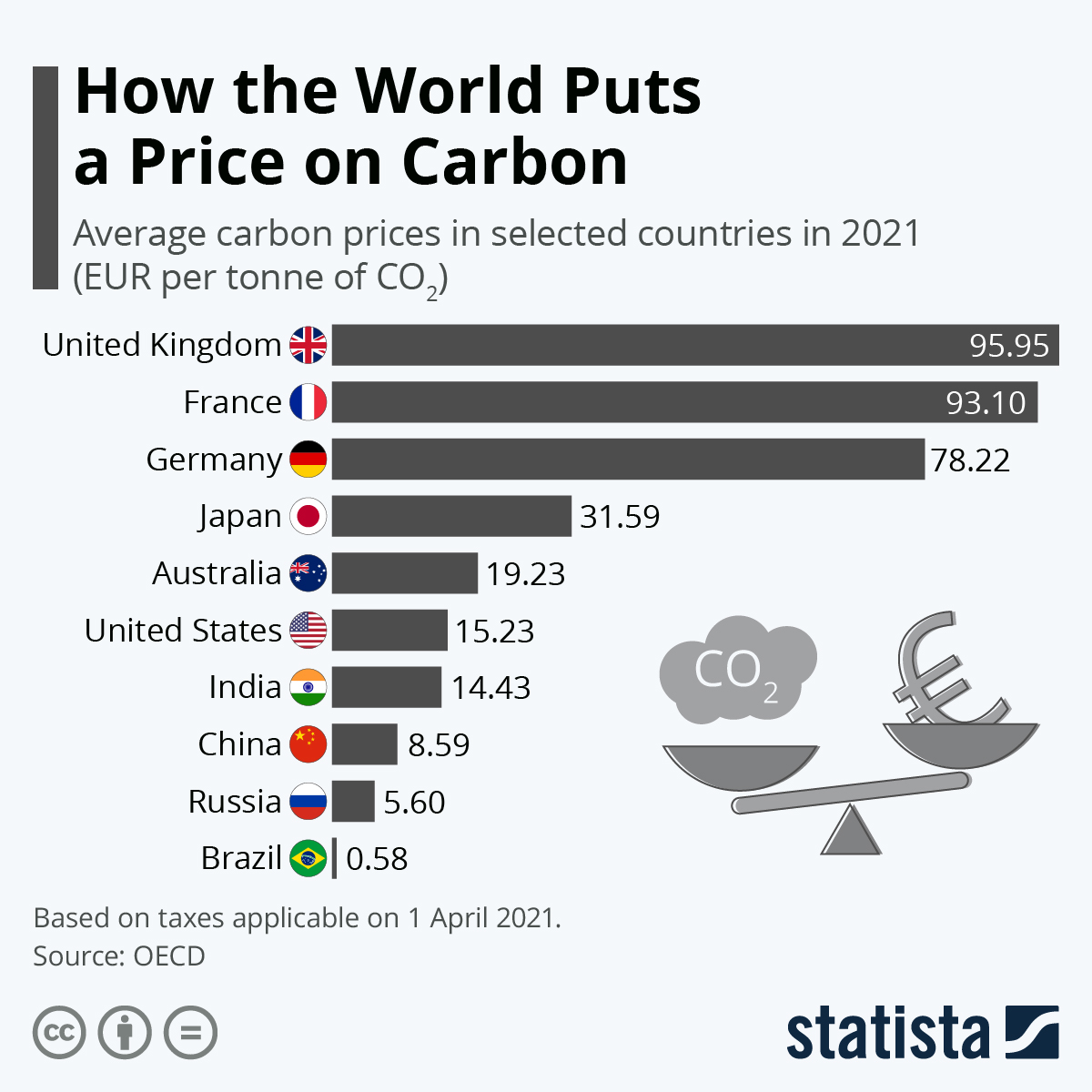As the COP26 climate change conference continues in Glasgow, UK, the World Economic Forum and PwC have published calculations that suggest creating an international price for carbon emissions could reduce global greenhouse gases by 12 percent while costing less than 1 percent of global GDP.
Bob Moritz, global chair of PwC commented: “We found this could be done without severe economic damage to livelihoods and business, although the effects would be somewhat uneven across the world. The costs to society and business of failing to act are far greater". The report is based on a scheme proposed by the IMF earlier this year, under which companies with high greenhouse gas emissions, in high-income countries, would be subject to a carbon price of $75 for every tonne of carbon dioxide emitted. This would fall to $50 a tonne for polluters in middle-income countries, and $25 a tonne for low-income countries.
As this infographic using OECD data shows, carbon pricing varies hugely among the world's largest economies. Some of the most stringent carbon policies are carbon taxes European countries have implemented. Nevertheless, looking at the G20 countries specifically, the OECD warns that further action is urgently needed across the board: "Around half of all emissions in G20 countries remain unpriced, and price levels are not high enough for a successful transition to net zero".





















